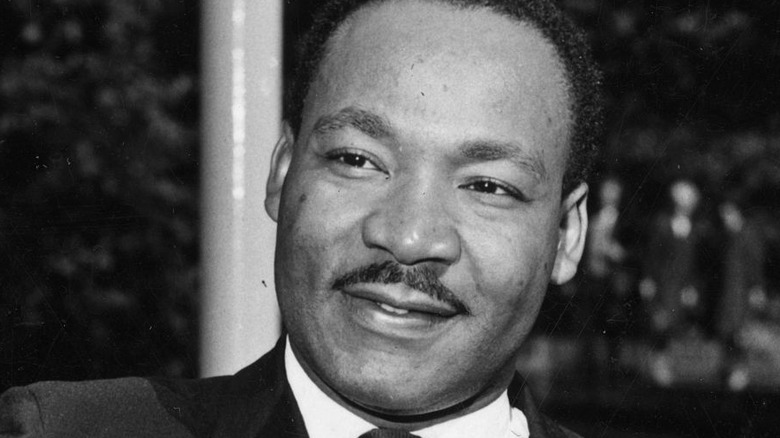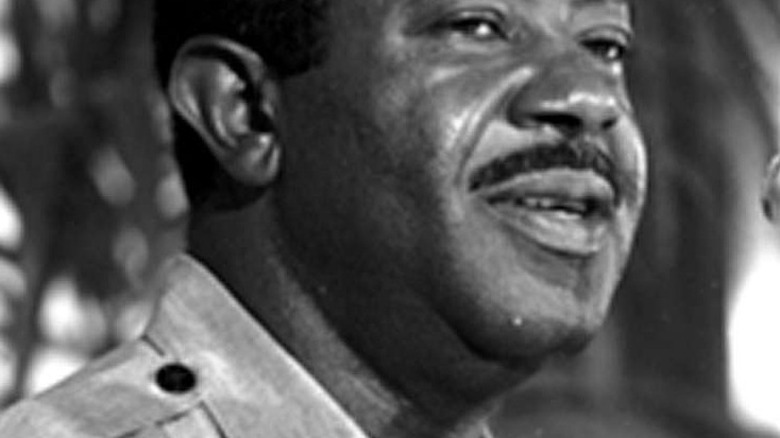What Happened To Martin Luther King Jr.'s Closest Friend?
Perhaps no other name is as closely associated with the civil rights movement of the 1950s and 1960s than that of Dr. Martin Luther King Jr. Indeed, the legendary Black icon has a federal holiday named in his honor six decades after he was taken down by an assassin's bullet, as History notes. However, King was by no means alone in his struggle for racial and social equality; other activists of his day include Rosa Parks, Claudette Colvin, the Little Rock Nine, and countless others.
One such civil rights pioneer, whose name has largely been lost to history, is that of Ralph Abernathy. As Thought Co explains, he was beside King as the man gave his famed "I've Been to the Mountain Top" speech, during which King called his companion "the best friend that I have in the world."
After King died in 1968, Abernathy's name was largely pushed to the footnotes of history. However, he continued to advocate for civil rights and equality throughout the rest of his life, including continuing with marches that King himself had already planned.
Ralph Abernathy got canceled
According to Thought Co, Ralph Abernathy had spent countless sleepless nights by King's side, planning this or that in order to push forward with the civil rights movement. The two men even spent nights next to each other in the same jail cells. After King died, Abernathy continued the work his predecessor had started, including carrying through with strikes, demonstrations, and other forms of advocacy.
So what caused his name to be effectively erased from history? New York Post writer Leonard Greene posits that Abernathy was canceled decades before the phrase would come to mean what it does now in popular culture. Specifically, Abernathy published his autobiography, "And The Walls Came Tumbling Down," in 1989. Though the book was a thorough examination of the Jim Crow-era South and the civil rights movement, Abernathy also spilled the tea about King's alleged marital infidelities. By "destroying the perfect-man myth" of King, as Greene calls it, Abernathy was, rightly or wrongly, seen as a traitor and a sell-out. "Abernathy appeals to the most prurient tendencies in current public life and gives comfort to the civil rights movement's enemies, who would use anything to discredit the movement," the Rev. Jesse Jackson said at the time.
Abernathy died of a heart attack in 1990.

